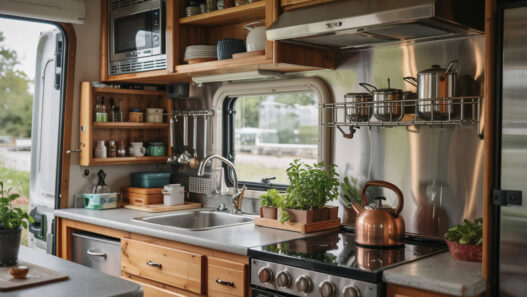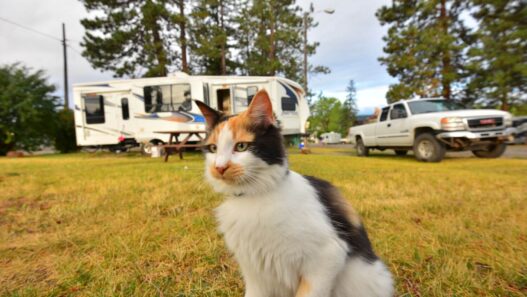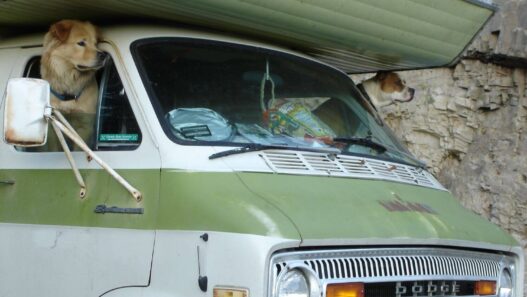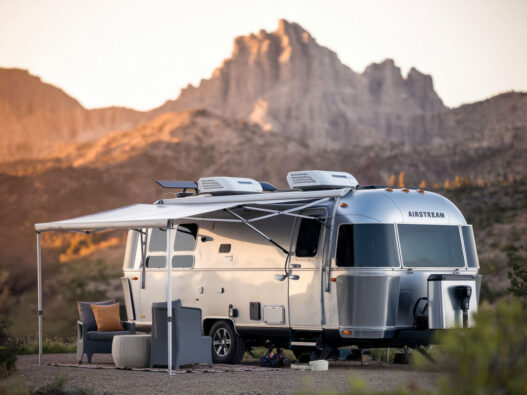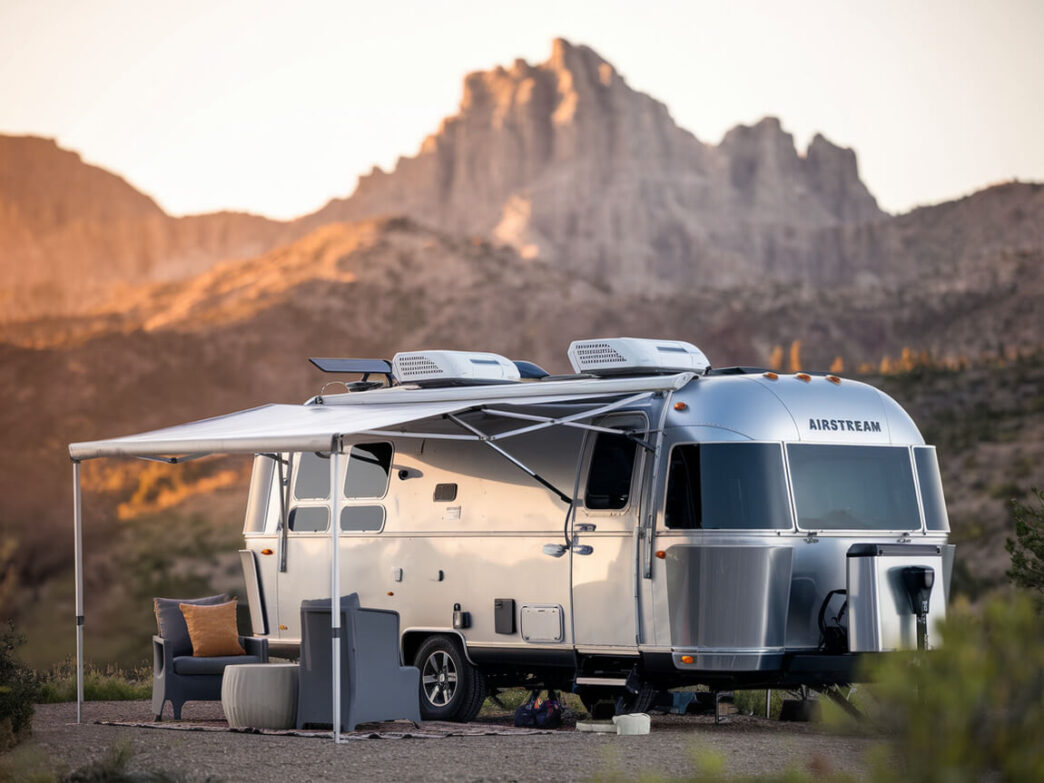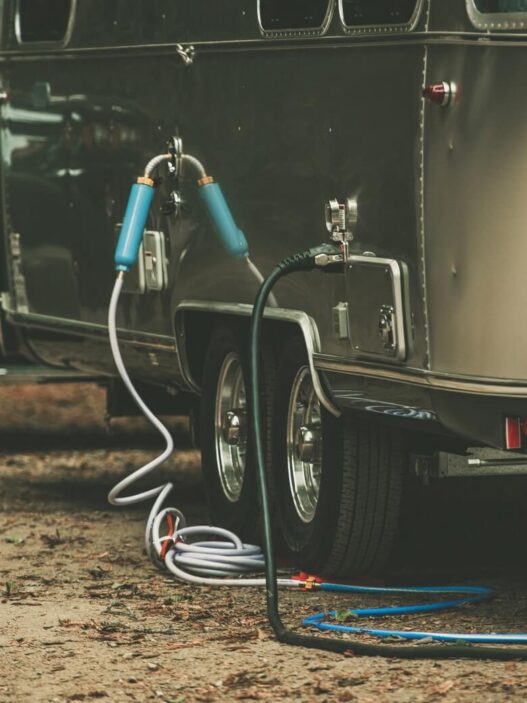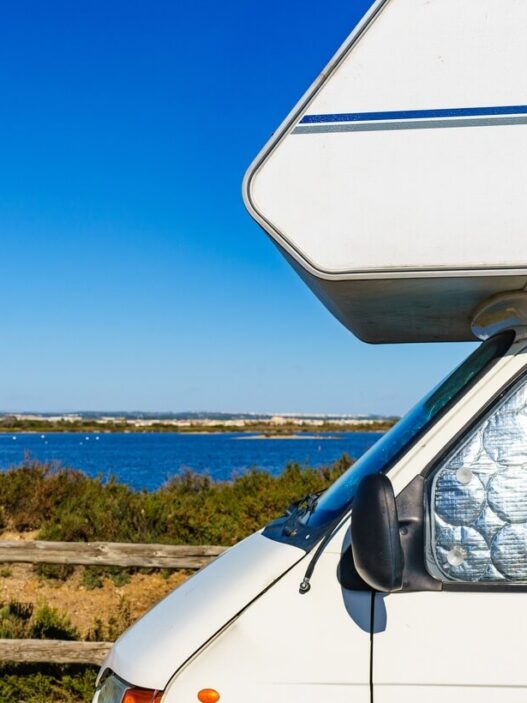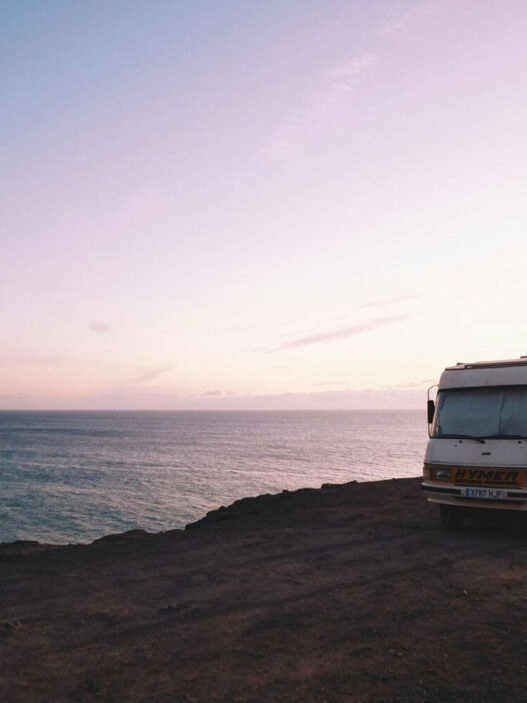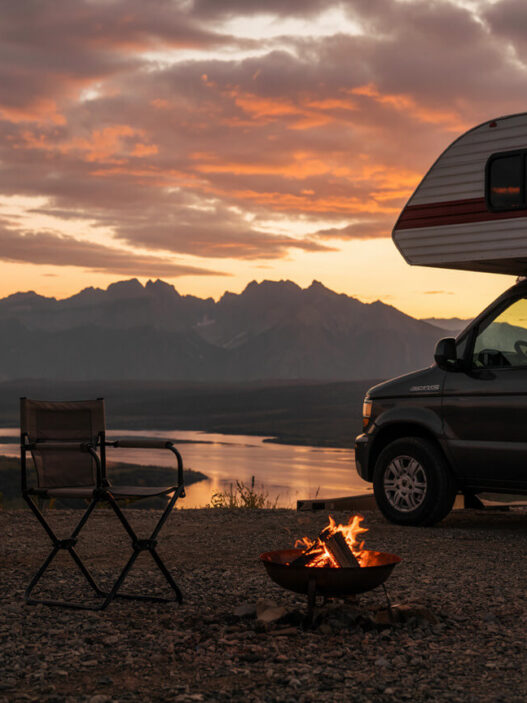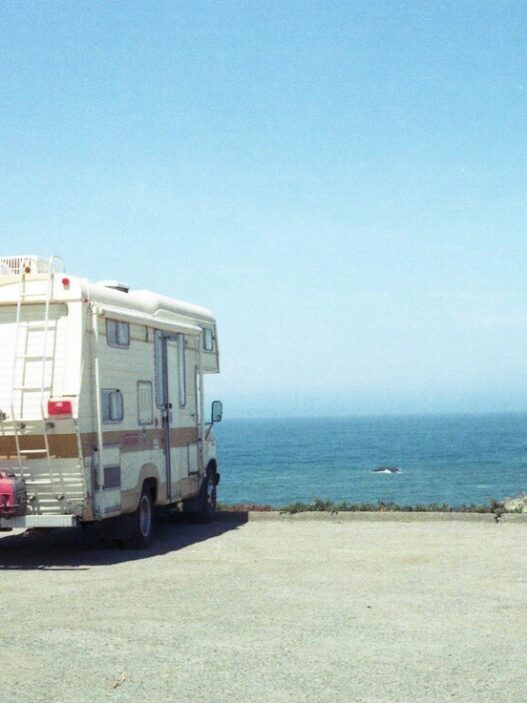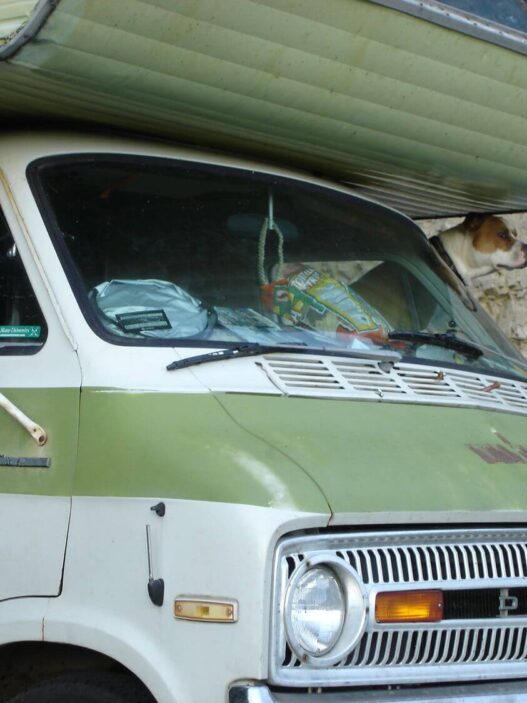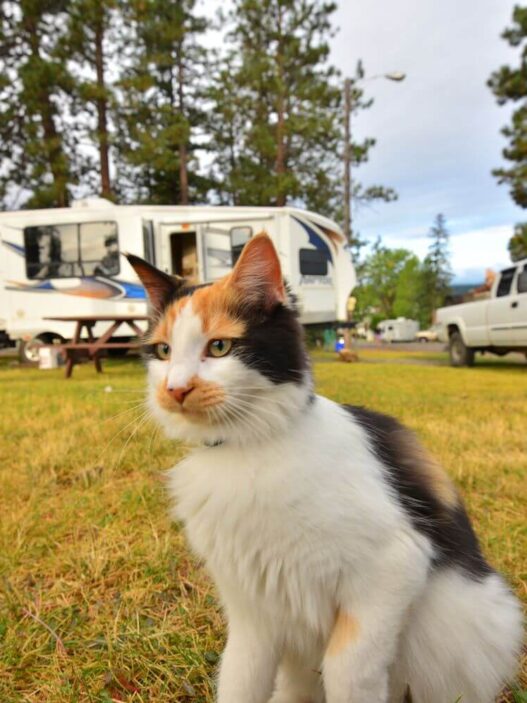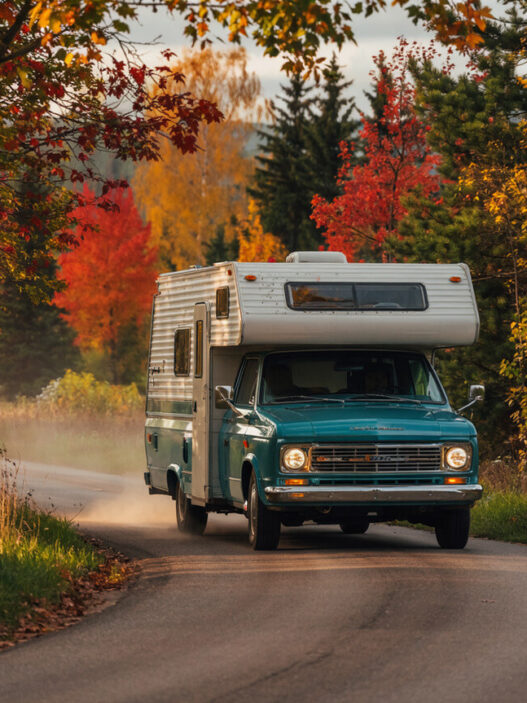Looking to hit the open road in your RV without breaking the bank? You’re not alone. While the freedom of RV living is incredible, managing costs can be challenging. But here’s the good news: with some smart money-saving strategies and insider knowledge, you can significantly reduce your monthly expenses and master the art of cheap RV living.
Let’s dive into some practical ways to make your RV lifestyle more affordable while maintaining comfort and enjoyment.
1. Pick Campsites Strategically
One of the biggest expenses in RV living is paying for camping spots. The good news? There are numerous ways to slash these costs or eliminate them entirely. The key is mixing different parking strategies based on your comfort level and needs.
Here are your best options for affordable camping:
- Free Boondocking: BLM and National Forest lands offer free camping for up to 14 days. While you won’t have hookups, you’ll get to experience some of America’s most beautiful locations at no cost.
- Membership Programs: Join networks like Harvest Hosts or Boondockers Welcome for unique stays at wineries, farms, and private properties.
- Extended Stay Discounts: Many RV parks offer monthly rates that can cut your daily cost by 50% or more.
- Work Camping: Exchange a few hours of weekly work for a free campsite and sometimes even a stipend.
Remember to plan your stays in advance when possible, as the most affordable options often fill up quickly during peak seasons.
2. Be Smart With Power Management
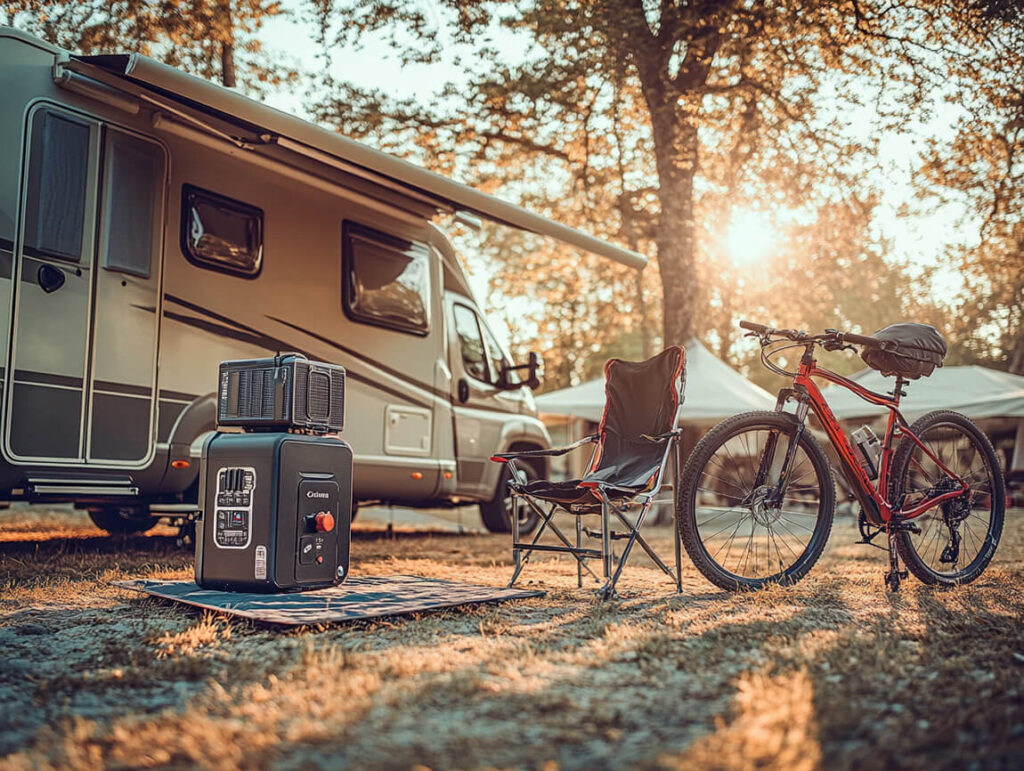
Managing your RV’s power consumption isn’t just about money-saving techniques. It’s about gaining independence and staying comfortable while enjoying some cheap RV living! The initial investment in power-saving equipment might seem significant, but the long-term savings make it worthwhile.
Solar power is revolutionizing RV living. A basic solar setup with two 100-watt panels, a charge controller, and batteries can power essential items like lights, fans, and small appliances. More extensive systems can even run air conditioning and other power-hungry appliances!
Key power-saving strategies include:
- Switch all lights to LEDs for 90% power reduction
- Install a power monitoring system to track usage
- Upgrade to lithium batteries for longer life and better performance
- Use power-hungry appliances during peak solar hours
- Plan your power needs based on your typical camping style
3. Learn To Conserve Your Water
Water management in an RV requires a different mindset than living in a house, but it doesn’t mean sacrificing comfort. Smart water usage not only saves money but also extends your boondocking capabilities and reduces tank maintenance needs.
Installing low-flow faucet aerators and showerheads can cut water usage by up to 50% without noticeably affecting water pressure. Navy showers and collecting cold shower water while waiting for it to heat up are simple but effective practices. Using a water pressure regulator not only protects your plumbing but can also help control water flow.
Grey water can often be repurposed for tasks like rinsing outdoor gear or watering plants (where permitted). Regular tank maintenance prevents costly repairs and extends system life. Using bacterial tank treatments instead of harsh chemicals keeps your systems clean while being environmentally friendly.
4. Practice Regular RV Maintenance
Regular maintenance might seem like an expense, but it’s actually one of your biggest opportunities for savings. Understanding basic RV systems and handling routine maintenance yourself can prevent costly repairs and extend your RV’s life.
Essential maintenance tasks you can learn:
- Regular oil changes and filter replacements
- Seal inspection and resealing
- Battery maintenance and testing
- Basic plumbing repairs
- Appliance cleaning and maintenance
- Generator servicing
- Tire pressure monitoring and rotation
Invest in quality tools gradually, starting with essentials like a good socket set, multimeter, and basic plumbing tools. Keep detailed maintenance records to track patterns and predict potential issues before they become problems.
5. Be Efficient With Climate Control
Maintaining comfortable temperatures in your RV without excessive energy use requires a combination of smart modifications and practical habits. The goal is to work with nature rather than against it.
RV skirting makes a huge difference in both cold and hot weather. In winter, it prevents freezing pipes and reduces heat loss. In summer, it keeps the underneath cooler, reducing air conditioning needs. Natural cooling techniques like parking in shade, using reflective window coverings, and creating cross ventilation can significantly reduce air conditioning needs.
For heating, small electric space heaters often use less power than running the RV furnace, especially when you only need to heat a small area. Adding thermal curtains and using window insulation kits can make a noticeable difference in both heating and cooling efficiency.
6. Food And Kitchen Tips
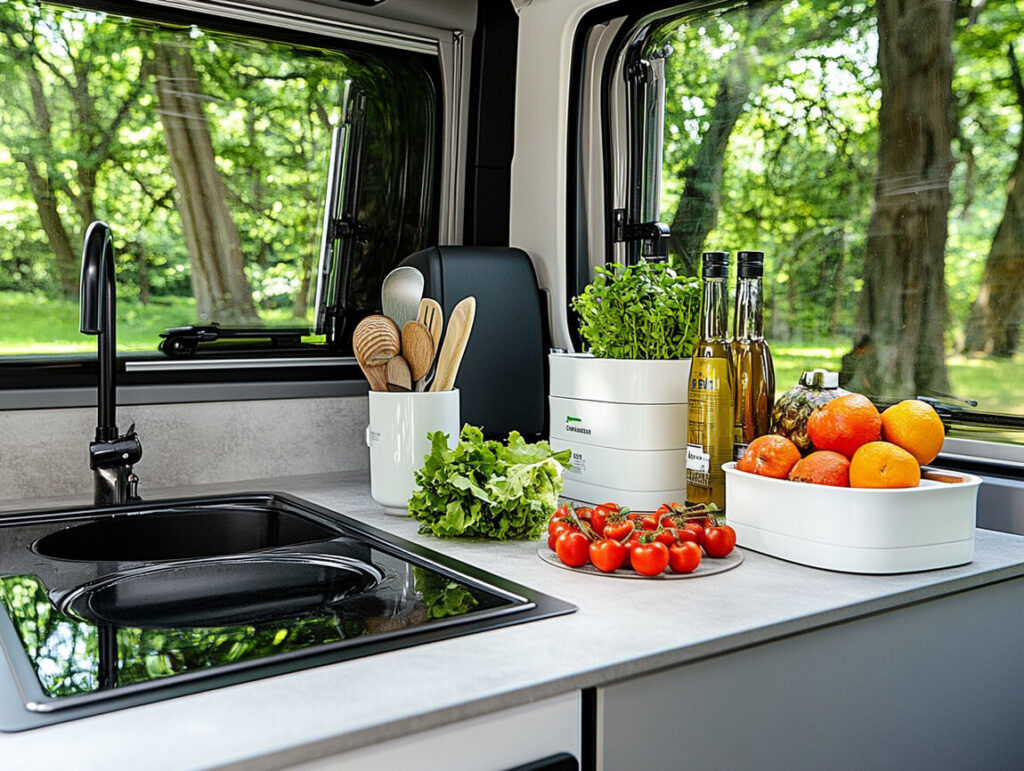
Efficient food management is a cornerstone of money-saving RV life. It’s about creating systems that reduce waste, support cheap RV living, and make cooking enjoyable in a small space.
Smart meal planning is essential for minimizing food waste and maximizing your grocery budget in an RV. Start by planning your weekly meals around versatile ingredients that can work in multiple dishes.
For example, if you buy fresh vegetables like bell peppers and onions, plan to use them in both a stir-fry and a pasta dish early in the week. When you store these ingredients, use high-quality stackable, airtight containers that not only save precious cabinet space but also significantly extend the life of your groceries.
Fresh herbs can last up to two weeks instead of just a few days, and vegetables stay crisp much longer when properly stored. This system helps you avoid the cost of replacing spoiled food and means fewer trips to potentially distant grocery stores, saving both money and fuel.
Plus, when ingredients can serve multiple meals, you’ll find yourself buying fewer specialty items that might only get used once before going bad.
Pro Tip: Learn to cook one-pot camping meals that minimize cleanup and propane usage. Many RVers find that using a toaster oven or electric pressure cooker for smaller meals saves propane and keeps the RV cooler.
7. Save On Internet And Entertainment
Internet and entertainment can easily become a large monthly expense while on the road, but with smart planning, you can slash these costs significantly while staying connected and entertained.
Start by optimizing your internet setup. Instead of paying for multiple data plans, consider these money-saving approaches:
- Use free Wi-Fi at libraries, cafes, and visitor centers for large downloads and updates
- Share a family cell phone plan with mobile hotspot features instead of paying for separate internet service
- Install a cell phone booster ($200-300 one-time cost) to avoid paying for multiple carriers
- Use apps like WiFi Map to find free, reliable networks wherever you travel
- Take advantage of campground Wi-Fi for basic tasks, saving your mobile data
For entertainment, you can save $50-100 monthly by avoiding traditional cable TV and satellite services. Cost-effective alternatives include:
- Rotate between streaming services instead of subscribing to multiple platforms at once
- Get a library card in your domicile state for free access to digital books, movies, and magazines
- Download content when you have free Wi-Fi for offline viewing later
- Take advantage of free state and national park programs
- Use free apps like iNaturalist and Geocaching for outdoor entertainment
- Check local community calendars for free events and activities
The key to saving money on connectivity is having a flexible approach. By combining these strategies, many RVers cut their monthly internet and entertainment costs from $200-300 down to $50-75 while still enjoying reliable service and plenty of content.
8. Master Insurance And Documentation
Managing paperwork and insurance might not be the most exciting part of RV life, but getting it right can save substantial money and prevent headaches down the road.
Essential considerations for maximizing savings:
- Full-time RV Insurance Coverage: Look for policies that combine multiple coverages into one package. Many RVers save hundreds annually by bundling their RV, auto, and personal property coverage. Consider higher deductibles if you have an emergency fund to lower monthly premiums.
- Domicile State Selection: States like South Dakota, Texas, and Florida can save you thousands annually through no state income tax. South Dakota often offers the lowest registration fees, while Florida provides competitive insurance rates. Research each state’s benefits before choosing.
- Mail Forwarding Services: Compare annual plans versus pay-as-you-go services. Many RVers save by using basic plans ($150-200/year) and supplementing with free temporary mail holds when staying in one location longer.
- Health Insurance Options: Consider health share ministries or plans designed for digital nomads, which can cost 30-50% less than traditional insurance. Some states offer better marketplace options for RVers than others.
- Vehicle Registration Requirements: Some states require annual inspections while others don’t, potentially saving you time and money. Research weight-based registration fees, as they vary significantly between states.
- Digital Document Organization: Going paperless reduces mail forwarding costs. Use free cloud storage for documents and set up electronic billing when possible to avoid late fees from delayed mail.
- Regular Policy Reviews: Schedule bi-annual insurance reviews. Many RVers find savings of 10-20% by comparing rates and coverage options, especially after their first year of full-time RVing when they better understand their needs.
Save money by starting with the right setup. Research common claims in RV insurance to understand where you might need more coverage versus where you can reduce it. Choose your domicile state carefully, as it affects everything from insurance rates to vehicle registration costs.
9. Embrace Continuous Learning
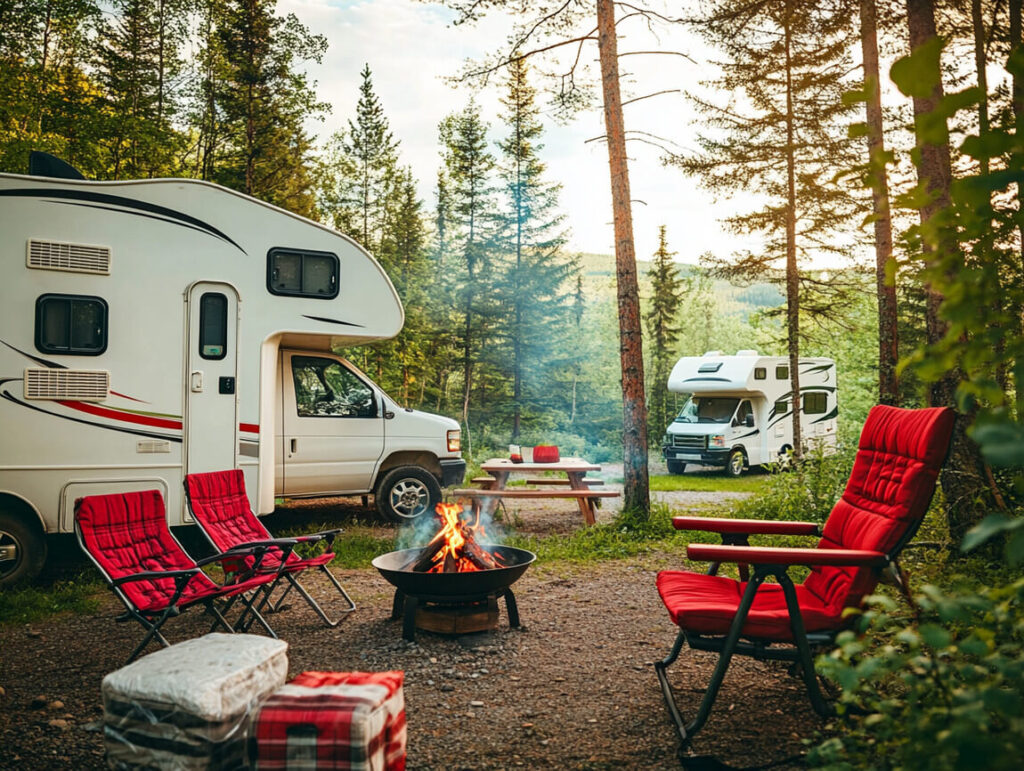
The RV community is one of the most supportive and knowledge-sharing groups you’ll find, especially when it comes to money-saving tips and cheap RV living strategies. Tapping into this wealth of experience and staying open to learning can save you thousands of dollars over time.
Ways to stay connected and maximize your learning:
- Join RV-focused Facebook groups and forums: Groups like “Full-Time RV Living” and “RV Tips” offer real-time advice on everything from repair solutions to campsite recommendations. Members often share money-saving discoveries and alert others to deals on RV supplies and campgrounds.
- Follow RV YouTube channels and podcasts: There are plenty of great resources online that provide detailed tutorials and maintenance tips that can save hundreds in repair costs. Many creators document common mistakes and their solutions, helping you avoid costly errors.
- Participate in RV rallies and meetups: While some rallies have registration fees ($50-200), the knowledge gained often pays for itself. Attendees share maintenance tips, travel insights, and often get exclusive discounts on RV products and services. Many informal meetups are completely free.
- Use apps like Campendium and iOverlander: User reviews often include insider tips about free camping spots, dump stations, and water fill locations. Premium versions of these apps ($20-30/year) can pay for themselves in one or two stays by helping you find free boondocking sites.
- Connect with state park volunteer programs: These opportunities often provide free camping in exchange for 15-20 hours of weekly service. Some programs also offer training in park maintenance and outdoor education, building valuable skills for RV living.
- Take online RV maintenance courses: While some courses cost $100-300, learning to do your own repairs can save thousands annually. Many community colleges and RV dealers offer free or low-cost basic maintenance workshops.
- Share your own experiences with others: Contributing to the community often leads to reciprocal help. Many RVers find that helping others troubleshoot problems leads to learning new solutions for their own RV.
- Build relationships with fellow RVers: These connections often result in shared resources, tool lending, and collaborative problem-solving. Having a network of experienced RVers to call on can save both money and stress during unexpected repairs.
The key to maximizing these resources is consistent engagement. Don’t wait until you have a problem to join the community. Regular participation helps you build relationships and knowledge gradually, making the lifestyle more enjoyable and affordable. Remember that every experienced RVer started as a beginner. Stay curious, ask questions, and be willing to learn from both successes and mistakes.
Closing Thoughts
Making RV living more affordable through these money-saving techniques doesn’t mean sacrificing comfort or enjoyment. Start implementing these cheap RV living strategies gradually, finding what works best for your situation.
Remember that the RV community is one of your best resources for learning and growing in this lifestyle. Every experienced RVer has valuable tips to share, and now it’s your turn!



